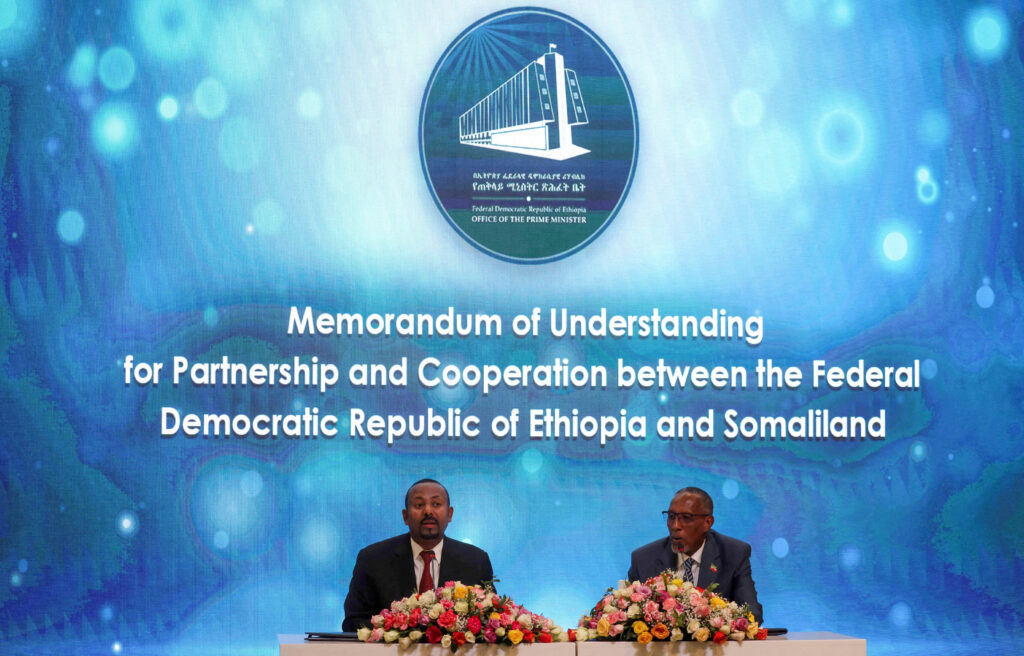In a decisive move that has significant implications for the Horn of Africa’s geopolitical landscape, Somali President Hassan Sheikh Mohamud has officially annulled a contentious agreement between the breakaway region of Somaliland and Ethiopia. This action, revealed late on Saturday, overturns a deal that would have granted Ethiopia, a nation without a coastline, access to the strategic Red Sea in exchange for recognizing Somaliland as an independent state.
The agreement in question, forged at the outset of the new year, proposed a 50-year lease that would allow Ethiopia to control a 20-kilometer stretch near the Port of Berbera, situated in the Gulf of Aden. This port is strategically important, offering a direct route to the Red Sea. The deal was seen as mutually beneficial for both parties, with Ethiopia set to gain a maritime outlet and Somaliland poised to receive international recognition from a significant African nation.
However, President Mohamud’s decision to sign a law repealing this memorandum of understanding (MoU) underscores Somalia’s commitment to maintaining its territorial integrity and sovereignty. The President, in a statement posted on X (formerly known as Twitter), asserted, “This evening, I signed the law nullifying the illegal MoU between the government of Ethiopia and Somaliland. This law is a testament to our determination to protect our unity, sovereignty, and territorial integrity in accordance with international law.” The specifics of the new law and the legislative process it underwent have not been made public.
This development comes amid escalating tensions in the Horn of Africa, where Ethiopia’s ambition to establish a presence on the Red Sea has been a source of regional concern. The Red Sea, a crucial maritime corridor, is a significant strategic interest for several nations in the region. Ethiopian Prime Minister Abiy Ahmed had previously emphasized the critical importance of the Red Sea to Ethiopia’s future, advocating in October for harmonious coexistence and balanced resource sharing among the countries in the Horn of Africa.
In a further twist to this geopolitical saga, there had been discussions about Ethiopia offering Somaliland a stake in the state-owned Ethiopian Airlines as part of the deal for Red Sea access. With the annulment of the MoU, such propositions appear to be off the table, reflecting the complex interplay of diplomacy and strategic interests in the region.
The reaction from officials in Somaliland and Ethiopia to Somalia’s latest move remains to be seen. As of this report, there has been no immediate comment from either party, adding to the uncertainty surrounding the evolving diplomatic and economic dynamics in the Horn of Africa.
President Mohamud’s action not only reaffirms Somalia’s stance on its national unity but also signals a potential shift in the region’s geopolitical balance. This decision could have far-reaching effects on the distribution of power and access to critical maritime routes in the Horn of Africa, a region already known for its historical conflicts and strategic rivalries.
As the situation continues to unfold, the international community is keenly observing, aware of the Horn of Africa’s importance as a key nexus of geopolitical interest. The outcome of this development could well set a precedent for how issues of territorial integrity and regional cooperation are managed in this strategically significant part of the world.





